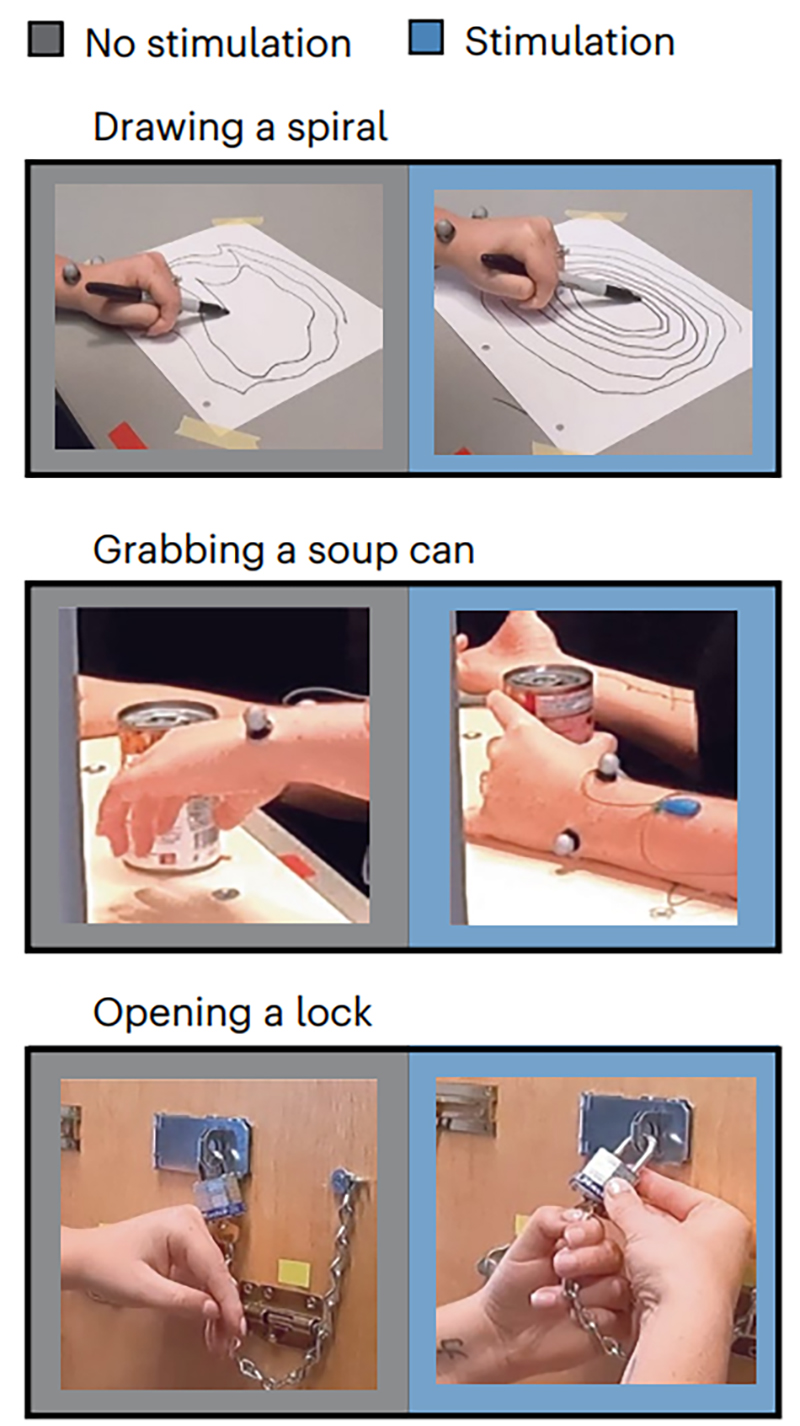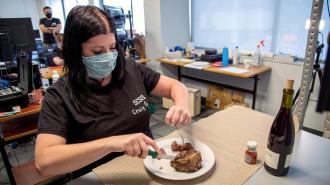For the first time, spinal cord stimulation has been shown to help stroke survivors regain control of their arms — and the benefits of the therapy appear to last even after the electrodes are removed.
The challenge: A stroke occurs when the blood supply to the brain is disrupted, either by a clot or a rupture. This causes brain cells to begin dying, leading to damage that can affect the stroke survivor’s ability to walk, talk, and move their limbs.
It is possible to regain some of these abilities through stroke rehab, especially if a survivor begins it soon after the stroke. Once six months have passed, they enter the “chronic” stage of the stroke — any lingering motor control issues are then considered untreatable and permanent.
“Even mild deficits resulting from a stroke can isolate people from social and professional lives.”
Elvira Pirondini
Why it matters: One in four adults will have a stroke over the course of their lives, and 75% of survivors will have lasting problems with moving at least one of their arms or hands, affecting their ability to work, live independently, or enjoy a high quality of life.
“Even mild deficits resulting from a stroke can isolate people from social and professional lives and become very debilitating, with motor impairments in the arm and hand being especially taxing and impeding simple daily activities, such as writing, eating, and getting dressed,” said senior co-author Elvira Pirondini.
“[O]n the first day of testing, [subject 1] … immediately reacquired the capacity to fully and volitionally open her hand.”
Powell, M. et al. 2023
What’s new? Researchers from the University of Pittsburgh and Carnegie Mellon University suspect that spinal cord stimulation could help stroke survivors with chronic movement issues in their upper limbs regain some mobility.
Their hypothesis is that this stimulation will activate the healthy nerves connecting the brain and spine, helping translate a person’s intentions to move their limbs into actual movements.
After refining the proposed therapy in computer simulations and animal testing, they launched a clinical trial, expected to enroll 15 people, in March 2021. They’ve now published the results from the first two trial participants.
“Some of these improvements endure when the stimulation is switched off.”
Marco Capogrosso
How it works: For the first-in-human study, the researchers implanted a pair of thin electrodes along the surface of the spinal cord in the necks of two stroke survivors suffering from years of chronic upper limb impairments.
Continuous electrical stimulation was then delivered to the participants’ spinal cords while they attempted certain movements and tasks. This enabled the patients to move their arms in ways they couldn’t previously, according to corresponding and co-senior author Marco Capogrosso.
“[O]n the first day of testing, [subject 1], for the first time in the nine years since her stroke, immediately reacquired the capacity to fully and volitionally open her hand,” the researchers reported in the study, published in Nature Medicine.
Stimulation also allowed her to raise her arm over her head, and her fine motor skills improved, too. She was able to draw a spiral, pick up a soup can, open a padlock, and even use a knife and fork to eat independently.

The electrodes were removed after 29 days, and according to the study, the researchers “did not expect to observe sustained improvements when [spinal cord stimulation] was turned off.” But some of the gains in motor control persisted for weeks.
“[W]e found that after a few weeks of use, some of these improvements endure when the stimulation is switched off, indicating exciting avenues for the future of stroke therapies,” said Capogrosso.

Looking ahead: It’s too soon to say whether spinal cord stimulation could be an effective treatment for stroke survivors with chronic mobility issues, especially based on results from just two patients, but the study is encouraging.
“While we cannot conclusively evaluate safety and efficacy from two participants, our data provide promising, albeit preliminary, evidence that spinal cord stimulation could be an assistive as well as a restorative approach for upper-limb recovery after stroke,” the researchers wrote.
Updated, 2/20/23, 6:45 p.m. ET: A video of one of the trial participants was added to this article.
We’d love to hear from you! If you have a comment about this article or if you have a tip for a future Freethink story, please email us at [email protected].





